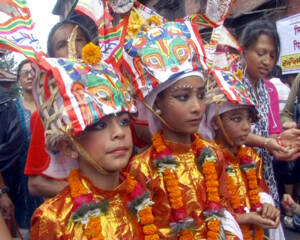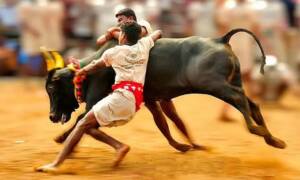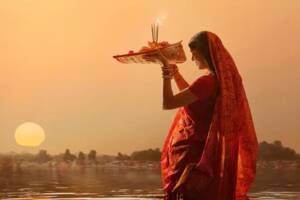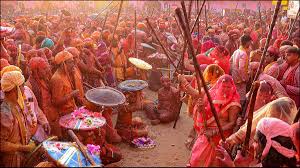Unusual Indian Festivals You’ve Never Heard Of
India is renowned for its vibrant and diverse festivals, from the exuberant celebrations of Diwali to the colorful revelries of Holi. While these mainstream festivals are well-known globally, India’s cultural tapestry is also adorned with lesser-known, unique festivals that offer intriguing glimpses into the country’s rich traditions. Here’s a look at some unusual Indian festivals that you may not have heard of but are definitely worth exploring.
RX REJUVENATE, THE BEST SKINCARE CLINIC LOCATED IN NORTH DELHI IS ONE OF THE GREAT SUPPORTER AND FOLLOWER OF EXPLORING UNIQUE INDIAN FESTIVALS WHICH LEADS THE PATHWAY TO NATION’S EMPOWERMENT AND ENCOURAGING US TO DELIVER MORE EFFICIENT AND TARGETED RESULTS TO OUR CLIENTS.
1. Lathmar Holi – The Festival of Flinging Sticks
While Holi is celebrated across India with colors and water, the Lathmar Holi in Barsana, Uttar Pradesh, stands out for its unique tradition. Celebrated a few days before the main Holi, this festival is famous for its playful battles where women beat men with sticks while men protect themselves with shields. The festival gets its name from the word “lath,” which means stick. This lively celebration, with its blend of tradition and fun, is a testament to the vibrant spirit of Indian festivals.
2. Sama Chakeva – The Festival of Brotherhood and Sisterhood
Sama Chakeva is a regional festival celebrated in the Mithila region of Bihar, primarily by the Maithil community. This festival, which takes place in November, honors the bond between brothers and sisters. The celebration involves creating intricate clay figurines of birds and animals, which are worshipped and then immersed in water. The festival is a blend of rituals and joyous celebrations that highlight the deep cultural values of kinship and family.
 3. Gai Jatra – The Cow Festival
3. Gai Jatra – The Cow Festival
Gai Jatra, also known as the Cow Festival, is celebrated in the Kathmandu Valley of Nepal, but its influence extends to certain parts of northern India. This festival, which occurs in August, involves a procession where people walk with cows, often adorned with colorful decorations. The festival is a tribute to deceased loved ones, and the cow is considered a symbol of guiding the departed souls to the afterlife. It’s a unique blend of reverence and celebration, marked by lively processions and traditional performances.
4. Banni Festival – The Festival of Camels
Held in the Kutch region of Gujarat, the Banni Festival is a remarkable celebration dedicated to camels. This festival, usually observed in December, showcases the significance of camels in the local culture. The festival features camel races, beauty contests, and various competitions, where camels are adorned with vibrant decorations and intricate embroidery. It’s a vibrant and lively festival that highlights the symbiotic relationship between the people of Kutch and their camels.
5. Kailash Yatra – The Festival of Pilgrimage
The Kailash Yatra is a unique pilgrimage festival celebrated in the remote region of Spiti Valley, Himachal Pradesh. This festival is dedicated to the sacred Mount Kailash, believed to be the abode of Lord Shiva. Pilgrims undertake a challenging trek to the base of the mountain, braving harsh weather conditions and rugged terrain. The festival, held in August, is a profound spiritual journey that attracts devotees from across the country seeking blessings and spiritual fulfillment.
 6. Jallikattu – The Bull-Taming Festival
6. Jallikattu – The Bull-Taming Festival
Jallikattu, celebrated in Tamil Nadu during Pongal, is an ancient and controversial festival involving bull-taming. Participants attempt to tame and control bulls that are let loose in an open field. While this festival is a display of bravery and skill, it has also sparked significant debate due to animal welfare concerns. Despite the controversy, Jallikattu remains a deeply ingrained tradition in Tamil culture, symbolizing strength and endurance.
7. Thimithi – The Fire-Walking Festival
Thimithi, also known as the fire-walking festival, is celebrated by the Tamil community in Tamil Nadu and Sri Lanka. This unique festival, held in October or November, involves participants walking barefoot across a bed of hot embers. The ritual is a demonstration of faith and devotion, and those who partake believe it brings them closer to divine protection and blessings. Thimithi is a powerful testament to the strength of human spirit and devotion.
8. Hemis Festival – The Monastic Festival
The Hemis Festival, celebrated in the Hemis Monastery of Ladakh, is a grand celebration of Tibetan Buddhism. Held in June or July, this festival features elaborate mask dances performed by monks, symbolizing the triumph of good over evil. The vibrant costumes, rhythmic music, and colorful decorations create a mesmerizing spectacle, offering a window into the rich cultural and spiritual heritage of the Tibetan Buddhist tradition.
 9. Chhath Puja – The Festival of the Sun God
9. Chhath Puja – The Festival of the Sun God
Chhath Puja, primarily celebrated in Bihar and Uttar Pradesh, is a festival dedicated to the Sun God, Surya. Held in October or November, this ancient festival involves elaborate rituals performed at riverbanks or ponds. Devotees fast and offer prayers to the Sun God, seeking blessings for health, prosperity, and the well-being of their families. The festival is marked by a deep sense of devotion and communal harmony, showcasing the significance of the Sun in Indian spirituality.
10. Basant Panchami – The Festival of Learning
Basant Panchami, celebrated in January or February, marks the arrival of spring and honors Saraswati, the goddess of knowledge and arts. In various parts of India, this festival is associated with flying kites, which symbolize the pursuit of higher knowledge and wisdom. The vibrant yellow attire, traditional sweets, and lively kite-flying events make Basant Panchami a joyous celebration of learning and renewal.
Conclusion
India’s festival calendar is a treasure trove of unique and lesser-known celebrations that offer fascinating insights into the country’s diverse cultural landscape. These unusual festivals, from the playful Lathmar Holi to the sacred Kailash Yatra, reveal the rich tapestry of traditions and beliefs that define Indian culture. Exploring these festivals provides a deeper understanding of India’s vibrant heritage and the myriad ways in which communities come together to celebrate life, spirituality, and tradition. Indian Festivals Indian Festivals Indian Festivals Indian Festivals Indian Festivals


